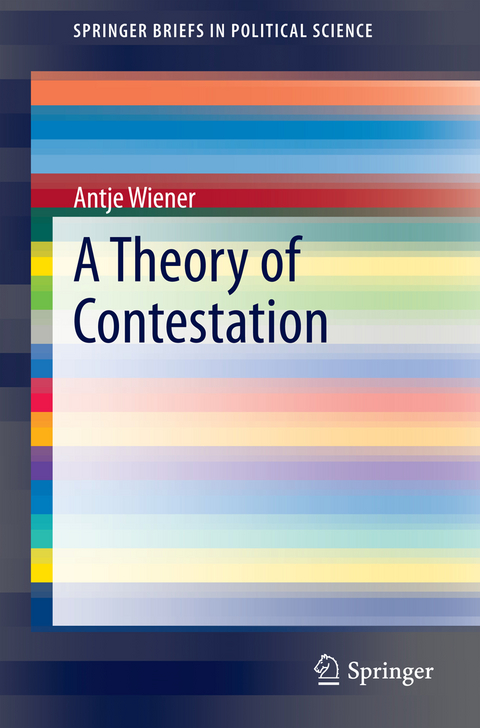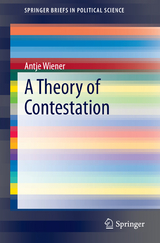A Theory of Contestation
Springer Berlin (Verlag)
978-3-642-55234-2 (ISBN)
Antje Wiener, PhD Carleton (1996), Dipl Pol FU Berlin (1989) is a Professor of Political Science especially Global Governance at the University of Hamburg. Her previous publications include The Invisible Constitution of Politics: Contested Norms and International Encounters (CUP, 2008) and ‘European’ Citizenship Practice: Building Institutions of a Non-State (West view, 1998). She is founding co-editor of the interdisciplinary journal Global Constitutionalism (CUP, since 2012) and has published widely on norms in international relations theories, European integration theories and on global constitutionalism. She was named as Academician of the Social Sciences in the United Kingdom in 2011.
Introduction: Contestation as a Norm-Generative Social Practice.- The Normativity Premise: The Normative Power of Contestation.- The Diversity Premise: The Legitimacy Gap in International Relations.- Cultural Cosmopolitanism: Contestedness and Contestation.- Thinking Tools and Central Concepts of the Theory of Contestation.- Applying the Theory of Contestation: Three Sectors of Global Governance.- Conclusion: Why a New Theory of Contestation?.
"Wieners Vorschlag, Kontestation stärker zu theoretisieren und dabei verschiedene Ansätze zu kombinieren, ist sehr zu begrüßen. Ebenso ihr Versuch, dies durch formulierte Prämissen offenzulegen und aufzuzeigen, wo die Normenforschung anzusetzen habe. ... Mit Ihrer Theory of Contestation bereitet Wiener ... einen konstruktiven Einstieg in die theoretische Debatte um Normen und deren Kontestation, welche sicherlich die Grundlage für weitere Forschung bilden wird." (Stefan Wallaschek , in: Politische Theorie und Ideengeschichte, Jg. 57, Heft 2, PVS 2016)
“Wieners Vorschlag, Kontestation stärker zu theoretisieren und dabei verschiedene Ansätze zu kombinieren, ist sehr zu begrüßen. Ebenso ihr Versuch, dies durch formulierte Prämissen offenzulegen und aufzuzeigen, wo die Normenforschung anzusetzen habe. … Mit Ihrer Theory of Contestation bereitet Wiener … einen konstruktiven Einstieg in die theoretische Debatte um Normen und deren Kontestation, welche sicherlich die Grundlage für weitere Forschung bilden wird.” (Stefan Wallaschek , in: Politische Theorie und Ideengeschichte, Jg. 57, Heft 2, PVS 2016)
| Erscheint lt. Verlag | 25.8.2014 |
|---|---|
| Reihe/Serie | SpringerBriefs in Political Science |
| Zusatzinfo | XV, 95 p. 1 illus. |
| Verlagsort | Berlin |
| Sprache | englisch |
| Maße | 155 x 235 mm |
| Gewicht | 193 g |
| Themenwelt | Recht / Steuern ► Öffentliches Recht |
| Sozialwissenschaften ► Politik / Verwaltung ► Europäische / Internationale Politik | |
| Sozialwissenschaften ► Politik / Verwaltung ► Politische Theorie | |
| Schlagworte | Contestation • Global Governance • Inernational Relations • Norms • public philosophy |
| ISBN-10 | 3-642-55234-X / 364255234X |
| ISBN-13 | 978-3-642-55234-2 / 9783642552342 |
| Zustand | Neuware |
| Haben Sie eine Frage zum Produkt? |
aus dem Bereich




